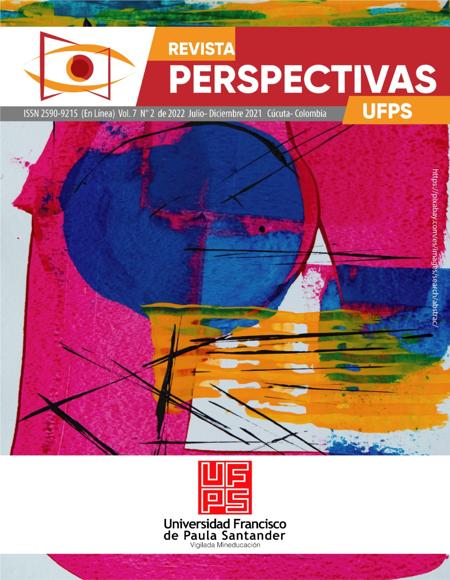Progressive return to on-site classes in post-pandemic times: the case of a Bachelor's program in Modern Languages at a Colombian Public University
Regreso progresivo a la presencialidad en tiempos de post-pandemia: el caso de un programa de Licenciatura en Lenguas Modernas de una Universidad Pública Colombiana
Main Article Content
The objective of this qualitative case study was to describe the progressive return to face-to-face teaching from the point of view of the professors of a Bachelor program of Modern Languages. At first, there were investigated the methodological strategies and the physical and technological resources they used for the development of their classes; this, in the framework of a "new normality" that included biosafety protocols that changed the dynamics of the class - such as the case of the capacity allowed in classrooms and social distancing.- In a second moment, there were identified the attitudes and perceptions of professors regarding this progressive return, allowing a reflection on the teaching processes in times of health crisis. The results found show the "aula espejo" as a useful methodology to achieve learning results if the technological infrastructure necessary for its development is available. On the other hand, the "b-learning" methodology highlights important challenges for educators who, although highlighted its benefits, they position it as a very demanding strategy that requires careful design and organization to achieve the pedagogical objectives outlined. Regarding methodological strategies, group work continues to be one of the most used by foreign language teachers due to the importance of interaction in bilingual training processes. Finally, and highlighting the professors' perceptions, the return to the classroom represented a challenge that, although difficult, brought with it many lessons that had an impact on their teaching practice
Downloads
Article Details
Anguera, M. T., Blanco-Villaseñor, A., Losada, J. L., Sánchez-Algarra, P., & Onwuegbuzie, A. J. (2018). Revisiting the difference between mixed methods and multimethods: Is it all in the name?. Quality & Quantity, 52(6), https://doi.org/10.1007/s11135-018-0700-2 DOI: https://doi.org/10.1007/s11135-018-0700-2
Borrás, J (2020). ¿Qué es un aula espejo?: La innovadora medida anticovid establecida en varias universidades. La Sexta (2020, 14 septiembre). Recuperado 22 de julio de 2022, de https://www.lasexta.com/programas/al-rojo-vivo/te-explicamos/que-es-un-aula-espejo-la-innovadora-medida-anticovid-establecida-en-varias-universidades_202009145f5f6aeeea2308000191c67d.html
Creswell, J. W. (2013). Qualitative inquiry and research design: Choosing among five approaches (3rd ed.). Los Angeles, CA: SAGE Publications
Consejo Académico Universidad del Quindío. (2021). Acuerdo N. 345 del 11 de agosto de 2021. Por medio del cual se establecen criterios para el regreso a clase en los programas de modalidad presencial y distancia en la universidad del Quindío para el segundo semestre de 2021. Recuperado de https://ecm.uniquindio.edu.co/resultado.php?oid=903a5949-cee1-4662-ac7f-1d9d8eddddde;1.0
Fontes Guerrero, Olga Lidia, González Agulló, Liset, & Martínez García, Reicer. (2019). El aprendizaje cooperativo en la clase de inglés como lengua extranjera. Transformación, 15(1), 63-73. Recuperado en 22 de julio de 2022, de http://scielo.sld.cu/scielo.php?script=sci_arttext&pid=S2077-29552019000100063&lng=es&tlng=es
Hrastinski, S. (2019). What Do We Mean by Blended Learning? TechTrends 63, 564–569 https://doi.org/10.1007/s11528-019-00375-5 DOI: https://doi.org/10.1007/s11528-019-00375-5
Joan, K. (2008). Classroom interaction and language learning Classroom interaction and language learning. Ilha do Desterro. https://doi.org/10.5007/2175-8026.2003n44p165 DOI: https://doi.org/10.5007/2175-8026.2003n44p165
Loaiza, N. García, J. Botero, M. Fortalecimiento del aprendizaje autónomo de estudiantes de licenciatura en lenguas extranjeras colombianos a partir de la teoría de los estilos de aprendizaje, las tic y el aula invertida. Revista Boletín REDIPE 8 (9). https://doi.org/10.36260/rbr.v8i9.819 DOI: https://doi.org/10.36260/rbr.v8i9.819
McCracken, G. (1988). The long interview. Sage Publication. https://doi.org/10.4135/9781412986229 DOI: https://doi.org/10.4135/9781412986229
Miles, M. B., Huberman, M. A. y Saldaña, J. (2014). qualitative data analysis. A methods sourcebook. Sage Publication.
Saiz, R. (2020). Aulas ‘Espejo’, el invento de la universidad pública de navarra para la vuelta presencial a las clases. (2020, 6 septiembre). El diario.es. Recuperado 22 de julio de 2022, de https://www.eldiario.es/navarra/sociedad/aulas-espejo-invento-universidad-publica-navarra-vuelta-presencial-clases_1_6202771.html
Universidad EAN (2020). Comunicado institucional 2. Gracias a la tecnología, la Universidad EAN continuará con sus actividades académicas durante el plan de contingencia por covid-19. Recuperado de https://universidadean.edu.co/sites/default/files/institucion/comunicados/Comunicado-institucional-Covid19-2.pdf
Universidad UNIAGUSTINIANA (2020). Un nuevo concepto al discurso educativo. Aula espejo, para los estudiantes de Administración de Empresas. Recuperado de https://www.uniagustiniana.edu.co/noticias/un-nuevo-concepto-al-discurso-educativo-aula-espejo-para-los-estudiantes-de-administracion
Varón, N. (2017). Clase espejo, una herramienta académica de proyección social, internacionalización e investigación. Recuperado de https://www.ucc.edu.co/ibague/prensa/2016/Paginas/Clase-espejo,-una-he-rramienta-academica-de-proyecci%C3%B3n-social,-internacionalizacion-e-investigacion.aspx
Watson, J. (2008). Blended learning: The convergence of online and face-to-face education. Promising Practices in Online Learning. North American Council for Online Learning. Recuperado de https://eric.ed.gov/?id=ED509636
Yangali Vicente, J., Varón Triana, N. & Calla Vásquez, K. (2021). Clase espejo, una estrategia de inter-nacionalización pedagógica para fortalecer la competencia investigativa en estudiantes de universida-des latinoamericanas. Zona Proxima, 35, 3-21. Recuperado de http://www.scielo.org.co/scielo.php?pid=S2145-94442021000200003&script=sci_arttext&tlng=es DOI: https://doi.org/10.14482/zp.35.001.42
Yin, R. (1994). Case Study Research. Design and methods. Applied social research methods. Vol 5. Second Edition, Sage publications, London







